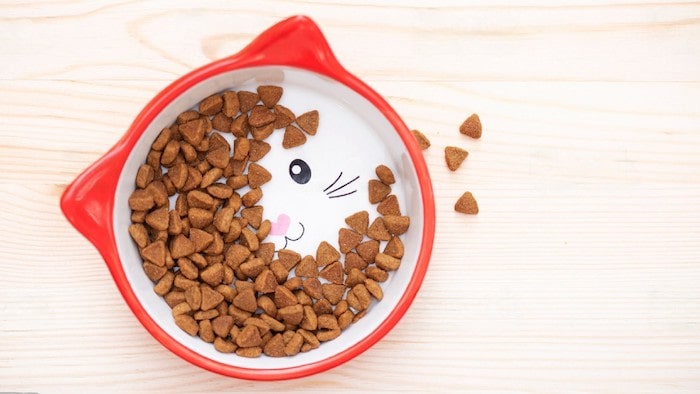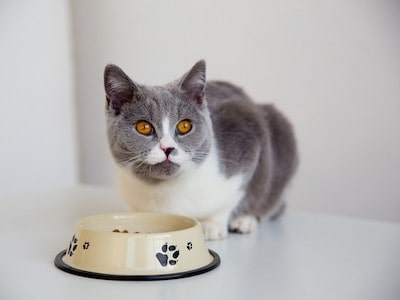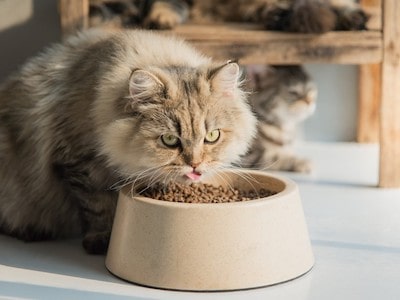As a responsible pet owner, it’s important to make informed decisions when it comes to your cat’s nutrition. One of the key factors to consider is the ash content in their food.

Ash is a naturally occurring mineral that can have a significant impact on your cat’s health, particularly when it comes to their urinary tract. In this complete guide to ash in cat food, we’ll explore everything you need to know about this important topic.
From understanding what ash is and its sources in cat food, to the ideal ash content for your cat’s diet, we’ll cover it all. Whether you’re a new cat owner or a seasoned pro, this guide will provide you with the information you need to make the best choices for your feline friend’s health and wellbeing.
Contents
What is Ash in Cat Food?
Ash is an inorganic mineral component of cat food that remains after organic matter has been burned at high temperatures. As per Tufts Vet Nutrition “As the majority of the minerals in a pet food are calcium and phosphorus, the % ash roughly parallels the amount of calcium and phosphorus.” It consists of essential minerals such as calcium, phosphorus, magnesium, potassium and sodium which are necessary to maintain a healthy diet for your feline friend.
The ash content can vary depending on the ingredients used in the preparation of cat food, typically comprising meat proteins, grains and vegetables, as well as through individual manufacturing processes.

While a certain amount of ash is beneficial to cats’ diets; too much may lead to urinary tract problems so it’s important for pet owners to understand how much ash their specific breed needs with regards to its dietary requirements.
A balanced diet should include an appropriate level based on these factors so that cats get all the nutrients they need without any potential risks from excessive levels or deficiencies from insufficient amounts.
Why is Ash in Cat Food Important?
Ash in cat food is important for several reasons, including:
- Nutritional requirements: As mentioned earlier, minerals in ash such as calcium, phosphorus, magnesium, potassium, and sodium are essential for your cat’s overall health and well-being.
- Digestive health: Ash also helps regulate your cat’s digestive system, supporting healthy bowel movements and reducing the risk of constipation.

- Bone health: Calcium and phosphorus, which are found in ash, are important for maintaining strong bones and teeth in cats.
- Skin and coat health: Some minerals in ash, such as zinc, are important for maintaining healthy skin and a shiny coat in cats.
- Immune system function: Minerals in ash are also essential for supporting your cat’s immune system, helping to ward off infections and diseases.
- Regulation: In some countries, pet food regulations have set limits on the amount of ash that can be present in cat food. These regulations aim to ensure that cat food meets the nutritional needs of cats while minimizing the risk of urinary tract issues.
Overall, understanding the role of ash in your cat’s diet and choosing the right food with an appropriate amount of ash can help promote optimal health and prevent potential health problems down the line.
How to Choose Cat Food with Appropriate Ash Content
As per Natures protection “ash percentage in cat food the normal ash content in feed is 5-8.” Choosing cat food with an appropriate ash content can be challenging, but here are some tips to help you make an informed decision:

- Read the label: Check the label of the cat food you’re considering and look for the ash content listed as a percentage. The ash content should be listed as ash or crude ash.
- Choose high-quality food: When shopping for cat food, opt for products made with real meat, fish, or poultry as the main ingredients. Steer clear of options that contain by-products, fillers or artificial preservatives as these can raise the ash content.
- Check with your vet: It is advisable to consult with your veterinarian before making any alterations to your cat’s diet if it has a past of urinary tract problems. Your vet can provide advice tailored to your cat’s specific requirements.
- Consider a prescription diet: If your cat has a history of urinary tract issues, your veterinarian may recommend a prescription diet with a specific ash content to help manage the condition.
- Variety is key: Giving your cat different types of top-notch food can help guarantee they get a balanced diet without excess ash.
FAQs
Can high ash content cause urinary tract issues in cats?
High levels of ash in cat food can increase the risk of urinary tract issues, such as the formation of crystals or stones in the bladder or urethra. These conditions can be painful and even life-threatening for cats if not properly managed.
Is ash in cat food bad for my cat?
No, ash is not inherently bad for cats. In fact, minerals in ash are essential for your cat’s health. However, high levels of ash can increase the risk of urinary tract issues, so it’s important to choose cat food with an appropriate ash content.
Can I reduce the ash content in my cat’s food?
If your cat has a history of urinary tract issues, your veterinarian may recommend a prescription diet with a lower ash content. However, it’s important to consult with your veterinarian before making any changes to your cat’s diet.
Can I give my cat food with no ash content?
No, it’s not possible to completely eliminate ash from your cat’s diet, as minerals are essential for your cat’s health. However, you can choose cat food with an appropriate ash content that meets your cat’s nutritional needs while minimizing the risk of urinary tract issues.
Well, It’s a Wrap
In conclusion, ash in cat food is an important consideration for pet owners to ensure their cat’s optimal health and well-being. While too much ash in cat food can increase the risk of urinary tract issues, an appropriate amount of ash is essential for your cat’s overall health, including bone health, digestive health, skin and coat health, and immune system function.
When choosing cat food for your furry friend, it’s important to consider the ash content and choose a high-quality food that meets your cat’s individual nutritional needs.
Consulting with your veterinarian can be helpful in determining the appropriate ash content for your cat’s diet and ensuring they receive the necessary nutrients to maintain their health.
By paying attention to the ash content in your cat’s food and taking steps to prevent urinary tract issues, you can help ensure a long and healthy life for your beloved pet.
Charlene Pare is the founder of Cat Likes Best. She manages and strategizes the content published on this website. When she isn’t working, she enjoys exploring the city around with her Ameican Shorthair kitty–Moli. Being a technocrat and an avid cat lover, she also writes on pet tech products and some of the featured articles.





